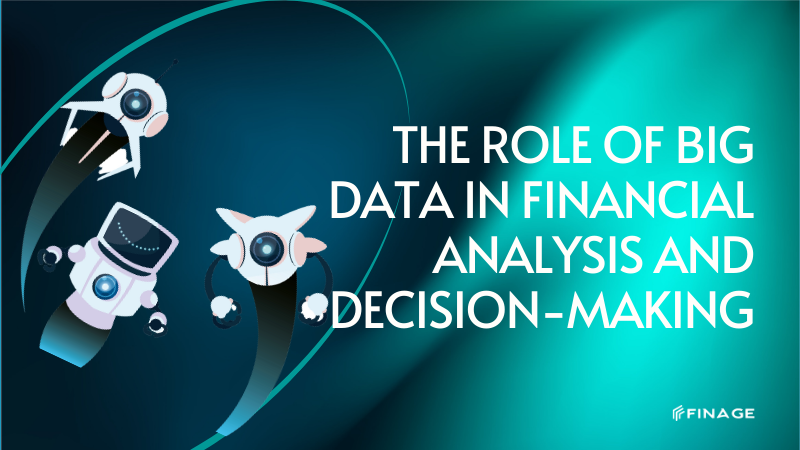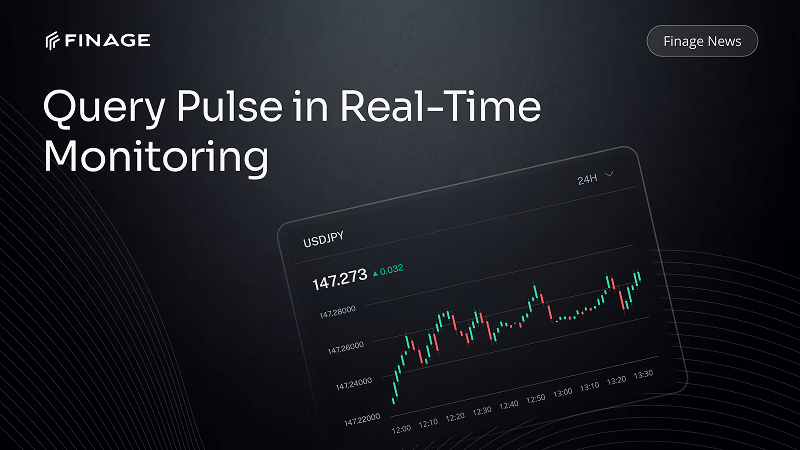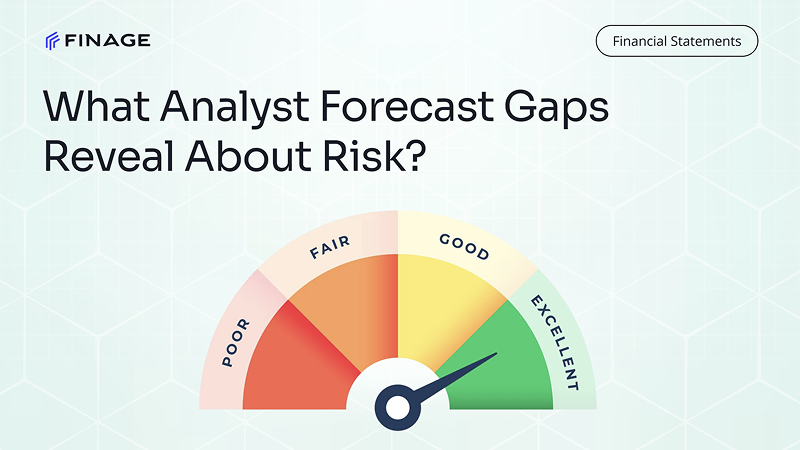The Role of Big Data in Financial Analysis and Decision-Making
5 min read • June 12, 2023

Introduction
Table of Contents
- Introduction
- The Evolution of Big Data in Finance
- Big Data in Financial Analysis
- How Big Data Transforms Financial Decision-Making
- The Future of Big Data in Finance
- Machine Learning and AI Integration
- Blockchain and Cryptocurrencies
- Conclusion
In the fast-paced world of finance, the ability to make informed decisions is paramount. Financial analysts and professionals rely on a multitude of tools and techniques to navigate the complex landscape of markets, investments, and economic trends. Among these tools, big data has emerged as a game-changer, revolutionizing the way financial analysis is conducted and decisions are made. In this blog, we will explore the pivotal role of big data in financial analysis and decision-making, and how it has transformed the industry.
The Evolution of Big Data in Finance
Before delving into its current role, let's trace the evolution of big data in finance. Traditionally, financial analysis was limited to structured data like stock prices, financial statements, and economic indicators. However, as technology advanced and the digital revolution unfolded, a massive amount of unstructured data became available. This data includes social media posts, news articles, satellite images, and even sensor data. Initially, it was challenging for the financial industry to harness this vast trove of information effectively.
Big Data in Financial Analysis
Data Variety: Big data encompasses structured, semi-structured, and unstructured data. Financial analysts now have access to a diverse range of information sources, including social media sentiment, news sentiment, and customer reviews. This variety helps in getting a more holistic view of the financial landscape.
Data Volume: Financial markets generate an enormous amount of data every second. Big data tools can handle this data deluge efficiently, enabling real-time analysis and faster decision-making.
Data Velocity: Financial markets are dynamic, with prices changing rapidly. Big data analytics allows for the processing of streaming data in real time, ensuring that financial professionals can react swiftly to market movements.
Data Veracity: With the increase in data sources, ensuring data quality and accuracy is critical. Big data technologies include data validation and cleansing processes to maintain data integrity, reducing the risk of erroneous analysis.
Data Value: The insights derived from big data analysis can be immensely valuable. Predictive modeling, sentiment analysis, and pattern recognition are some of the techniques used to extract actionable insights from the data.
How Big Data Transforms Financial Decision-Making
- Risk Assessment: Big data analytics can identify emerging risks by monitoring global news, social media trends, and market sentiment. This helps in proactive risk management and portfolio adjustments.
- Trading Strategies: Algorithmic trading models utilize big data to make high-frequency trading decisions based on market patterns and trends, often within milliseconds.
- Customer Insights: Financial institutions leverage big data to gain deeper insights into customer behavior and preferences. This information helps in tailoring financial products and services to meet individual needs.
- Fraud Detection: Big data analytics can identify fraudulent activities by analyzing transaction patterns and detecting anomalies, protecting financial institutions and their customers.
- Compliance and Regulation: Regulatory compliance is a crucial aspect of finance. Big data assists in automating compliance processes, ensuring adherence to legal requirements.
Challenges and Considerations
While big data offers numerous advantages, it also presents challenges:
- Data Security: Handling sensitive financial data requires robust security measures to protect against breaches and cyber threats.
- Data Privacy: Compliance with data privacy regulations, such as GDPR and CCPA, is essential when dealing with customer data.
- Data Governance: Establishing clear data governance policies and practices is crucial to maintain data quality and integrity.
The Future of Big Data in Finance
As we look ahead, it's clear that big data's role in finance will continue to evolve and expand. Here are some key trends and developments to anticipate:
Machine Learning and AI Integration: Machine learning algorithms and artificial intelligence (AI) will play an even more significant role in financial analysis. These technologies can analyze vast datasets, detect intricate patterns, and make predictions with remarkable accuracy. Robo-advisors, for example, are already using AI to offer automated investment advice.
Quantitative Finance: Big data will further blur the line between quantitative finance and traditional finance. Quants will increasingly rely on big data analytics to develop complex models for risk management, portfolio optimization, and trading strategies.
Alternative Data Sources: The quest for unique insights will drive financial professionals to explore unconventional data sources. Satellite imagery, geolocation data, and IoT (Internet of Things) data will become more prominent in financial analysis.
Blockchain and Cryptocurrencies: Big data will also be integral in analyzing blockchain and cryptocurrency markets. Blockchain's transparency offers a wealth of data for analysis, and cryptocurrencies have generated new forms of financial data.
RegTech: Regulatory technology, or RegTech, will continue to leverage big data for streamlined compliance processes. Automating regulatory reporting and ensuring adherence to financial regulations will remain a priority.
Ethical Considerations: As the use of big data in finance grows, ethical considerations related to data privacy and algorithmic bias will become more prominent. Financial institutions will need to navigate these issues carefully.
Education and Training: Financial professionals will require ongoing education and training to keep up with the evolving role of big data in their industry. Understanding how to harness data effectively will be a crucial skill.
Final Thoughts
Big data has firmly established itself as a transformative force in the world of finance. Its ability to process and analyze vast amounts of data has revolutionized financial analysis and decision-making. As technology continues to advance and data sources multiply, financial professionals who embrace and adapt to these changes will be better equipped to navigate the increasingly complex financial landscape. The future of finance is data-driven, and those who harness the power of big data will thrive in this dynamic environment.
We hope that this blog post will be beneficial for you. We will continue to create useful works in order to get inspired by everyone. We are sure that we will achieve splendid things together. Keep on following Finage for the best and more.
You can get your Real-Time and Historical Market Data with Finage free API key.
Build with us today!
Claim Your Free API Key Today
Access stock, forex and crypto market data with a free API key—no credit card required.

Stay Informed, Stay Ahead
Finage Blog: Data-Driven Insights & Ideas
Discover company news, announcements, updates, guides and more

.png)
